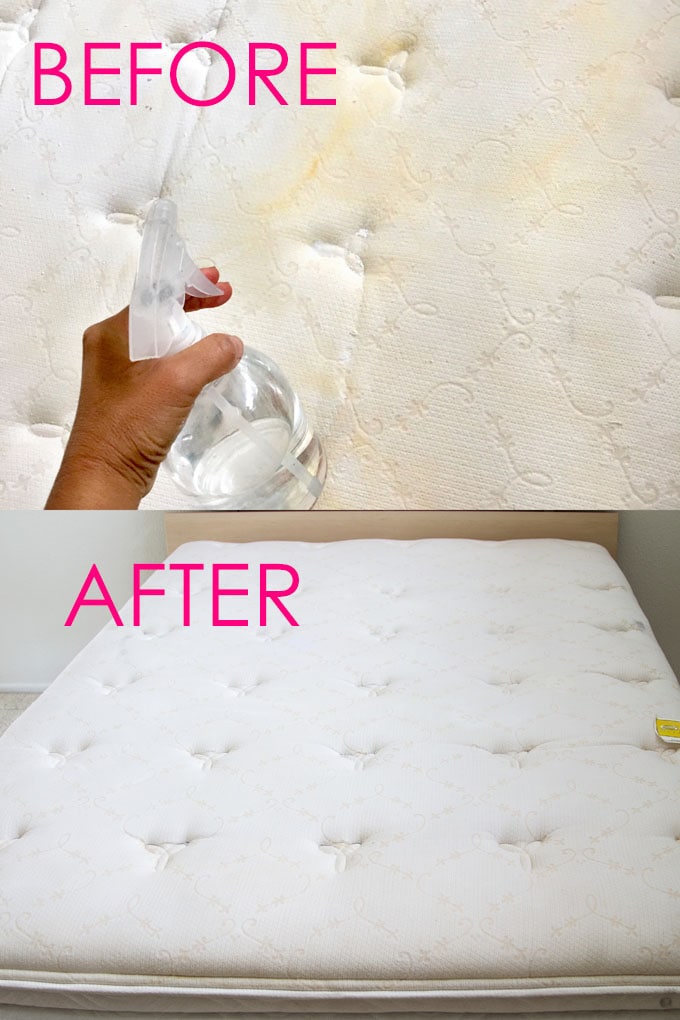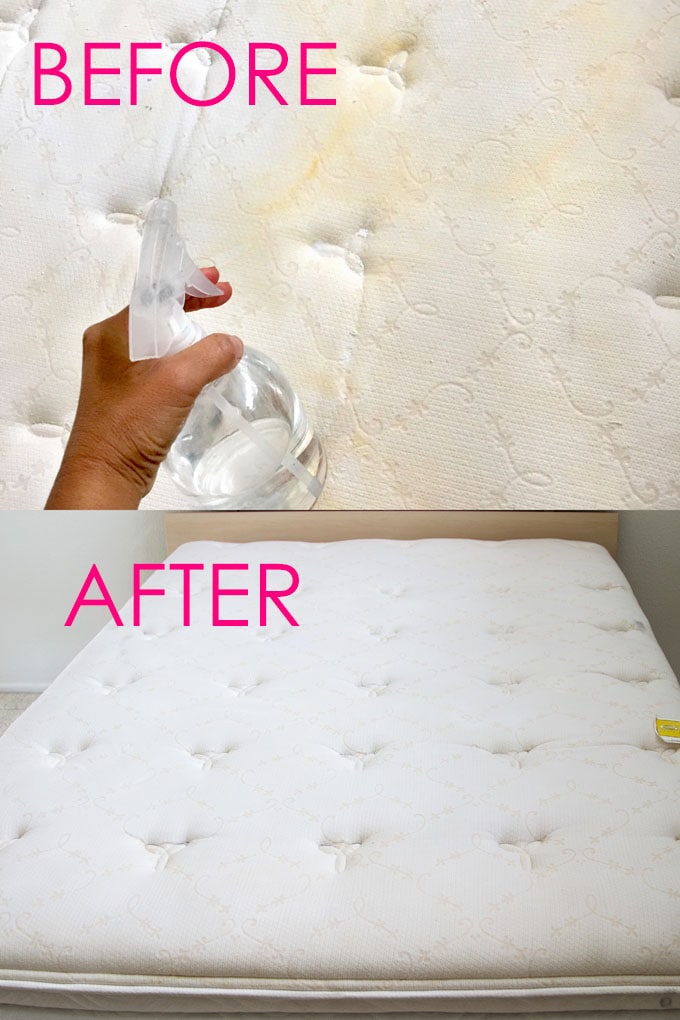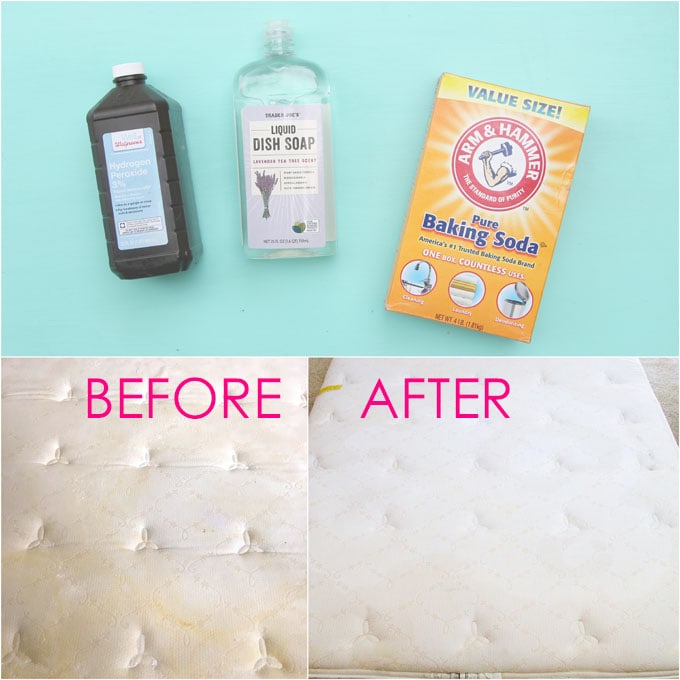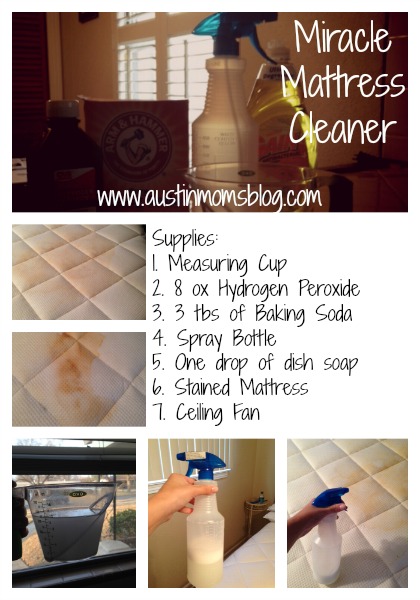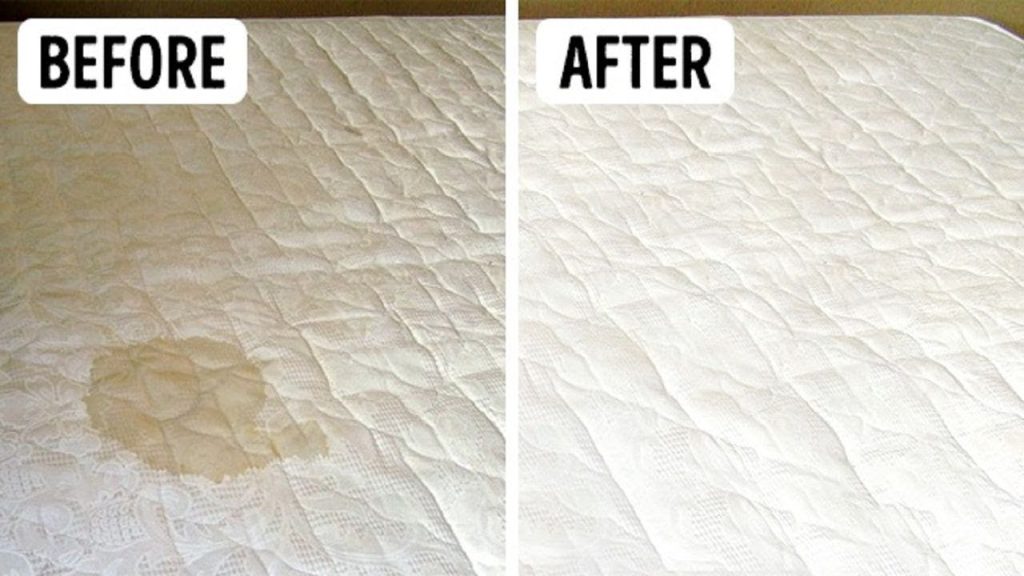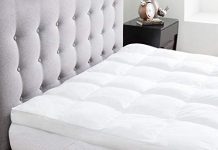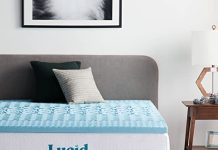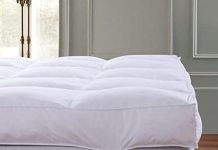Lying in a peaceful slumber should be a time of rejuvenation, not fretting about stubborn stains on your mattress. We understand the frustration that comes with trying to rid your mattress of those pesky marks. Thankfully, we’ve got the solutions you need to bid adieu to those stains and restore your mattress to its pristine state. In this article, we will share tried and tested methods that will help you conquer even the most stubborn of mattress stains, ensuring you can rest easy once again. Let’s get rid of those unsightly blemishes together!
This image is property of www.apieceofrainbow.com.
Review contents
Preparation
Identify the stain
Before tackling any stain on your mattress, it’s important to identify what the stain is. Different types of stains may require different cleaning methods, and using the wrong method could potentially make the stain worse or damage the fabric of the mattress.
Check mattress care instructions
Before proceeding with any cleaning method, it’s important to check the care instructions provided by the mattress manufacturer. Some mattresses may require specific cleaning techniques or prohibit the use of certain cleaning products. Following the care instructions will help you clean your mattress safely and effectively.
Gather necessary supplies
To clean a mattress stain, you’ll need a few supplies. Make sure you have the following items on hand before you begin:
- Clean, white cloths or paper towels
- Cold water
- Mild detergent
- Baking soda
- White vinegar
- Hydrogen peroxide
- Lemon juice
- Essential oils (optional)
- Vacuum cleaner with upholstery attachment
- Spray bottle
- Soft brush or sponge
General Stain Cleaning Methods
Blot the stain
When you notice a fresh stain on your mattress, the first step is to gently blot it with a clean, white cloth or paper towel. Avoid rubbing the stain, as this can push it deeper into the fabric and make it more difficult to remove. Instead, use a pressing motion to absorb as much of the stain as possible.
Use cold water
After blotting the stain, dampen a clean cloth or sponge with cold water. Avoid using hot water, as this can set the stain and make it more difficult to remove. Gently dab the stain with the damp cloth, working from the outside in to prevent spreading the stain further.
Try mild detergent
If plain cold water doesn’t fully remove the stain, you can try using a mild detergent. Mix a small amount of mild detergent with cold water to create a soapy solution. Dip a clean cloth or sponge into the solution and blot the stain gently. Be sure to rinse the detergent thoroughly afterward by dabbing the stain with a cloth soaked in clean water.
Apply baking soda
Baking soda is a versatile cleaning agent that can help remove stains and eliminate odors. After treating the stain with cold water and mild detergent, sprinkle baking soda over the affected area. Let it sit for about 30 minutes to absorb any remaining moisture and odors. Vacuum the baking soda off the mattress using a vacuum cleaner with an upholstery attachment.
Specific Stain Cleaning Methods
Blood stains
Blood stains can be tricky to remove, but prompt action can increase the chances of successful removal. Start by blotting the stain with cold water. Next, mix a tablespoon of mild detergent with two cups of cold water. Dab the stain with the soapy solution and rinse thoroughly. If the stain persists, you can try using hydrogen peroxide, but first, test it on a hidden area of the mattress to ensure it doesn’t cause discoloration.
Urine stains
Urine stains can leave a strong odor if not properly cleaned. Begin by soaking up as much urine as possible using clean towels or paper towels. Blot the stain with cold water and then apply a mixture of equal parts white vinegar and water. Blot the stain several times, rinse with cold water, and sprinkle baking soda over the area. Let it sit for a few hours or overnight, then vacuum the baking soda.
Sweat stains
Sweat stains can discolor and leave unpleasant odors on your mattress. To tackle these stains, mix equal parts hydrogen peroxide and water. Dab the stain with the mixture, and let it sit for 30 minutes. Blot the stain again using cold water and a clean cloth. If the stain and odor persist, you can try using a mixture of equal parts white vinegar and water, followed by sprinkling baking soda over the area and vacuuming it up.
Food and drink stains
Food and drink stains can be a common occurrence, especially if you enjoy eating or drinking in bed. Start by removing any solid residue with a spoon or blunt edge. Blot the stain using cold water and a clean cloth. If the stain remains, mix a small amount of mild detergent with cold water and dab the stain gently. Rinse the area thoroughly and dry it completely before applying baking soda to remove any residual odor.
Ink stains
Ink stains can be challenging to remove, but acting quickly can increase the chances of successful removal. Blot the stain with a clean cloth to soak up as much ink as possible. Next, apply rubbing alcohol to a clean cloth or cotton ball and gently dab the stain, working from the outside in. Continue dabbing until the ink is no longer transferring onto the cloth. Rinse the area with cold water and blot dry. If the stain persists, you may need to consider seeking professional assistance.
Vomit stains
Vomit stains can leave behind a strong odor that lingers if not properly cleaned. Begin by removing any solid residue using a spoon or blunt edge. Blot the stain with cold water and try using a mixture of equal parts white vinegar and water. Dab the stain gently, rinsing with cold water afterward. If the odor persists, you can try using hydrogen peroxide, but make sure to spot test it first.
Natural Remedies
White vinegar
White vinegar is a versatile natural cleaner that can help remove stains and odors from your mattress. Mix equal parts white vinegar and water in a spray bottle. Spray the stained area and let it sit for a few minutes. Blot the stain with a clean cloth or sponge, applying gentle pressure. Rinse the area thoroughly with cold water and blot dry.
Hydrogen peroxide
Hydrogen peroxide is another natural remedy that can effectively remove stains from a mattress. It is particularly useful for blood and urine stains. As mentioned earlier, spot test hydrogen peroxide on a hidden area of the mattress before using it to ensure it does not cause discoloration. If it is safe to use, apply hydrogen peroxide to a clean cloth or sponge and dab the stain gently. Rinse the area thoroughly with cold water and blot dry.
Lemon juice
Lemon juice is a natural bleaching agent and can be effective for lightening stains on a mattress. Squeeze fresh lemon juice onto a clean cloth or sponge and dab the stain gently. Let the lemon juice sit for a few minutes before rinsing the area with cold water and blotting it dry.
Baking soda and essential oils
To freshen up your mattress and eliminate odors, you can mix baking soda with a few drops of your favorite essential oil. Sprinkle the mixture over the mattress and let it sit for a few hours or overnight. Vacuum the baking soda thoroughly to remove any lingering odors.
This image is property of www.apieceofrainbow.com.
Professional Cleaning Options
Hire a professional mattress cleaner
If you’re unsure about how to clean a difficult stain or if your mattress needs a deep cleaning, it might be best to hire a professional mattress cleaner. Professional cleaners have the expertise and specialized equipment to effectively remove stubborn stains and deep-seated dirt.
Steam cleaning
Steam cleaning is another option for deep-cleaning your mattress. It involves using high-temperature steam to kill bacteria, remove dirt, and lift stains. However, it’s important to follow the manufacturer’s care instructions and avoid excessive moisture, as it can damage the mattress.
Tips and Precautions
Act promptly
The key to successfully removing a mattress stain is to act quickly. The longer a stain sits, the more difficult it becomes to remove. As soon as you notice a stain, try to address it promptly to increase the chances of successful stain removal.
Avoid using excessive water
While water is often used in the cleaning process, it’s important to avoid using excessive amounts of water on your mattress. Excessive moisture can lead to mold and mildew growth, which can damage the mattress and pose a health risk. Use water sparingly and make sure to thoroughly dry the mattress afterward.
Spot test cleaning products
Before using any cleaning product or remedy on your mattress, it’s always a good idea to perform a spot test on a hidden area. This will help you ensure that the product does not cause discoloration or damage the fabric of the mattress.
Properly dry the mattress
After cleaning your mattress, it’s crucial to ensure that it is thoroughly dry before using it again. Moisture left in the mattress can lead to mold growth and an unpleasant odor. Allow the mattress to air dry completely before covering it with clean sheets and bedding.
This image is property of i.ytimg.com.
Prevention of Stains
Use a mattress protector
One of the best ways to prevent stains on your mattress is by using a mattress protector. A waterproof mattress protector acts as a barrier between any spills or accidents and the mattress itself, preventing stains from forming and keeping your mattress cleaner for longer.
Regularly clean bed linens
Regularly washing your bed linens, including sheets, pillowcases, and duvet covers, can help prevent stains from seeping through to the mattress. Launder them according to the manufacturer’s instructions, and avoid using excessive amounts of detergent, as residue can accumulate and attract dirt.
Avoid eating or drinking in bed
While it may be tempting to enjoy a late-night snack or a cup of coffee in bed, it’s best to avoid eating or drinking in bed altogether. Accidental spills are more likely to happen, and food and drink stains can be particularly challenging to remove from a mattress.
Dealing with Persistent Stains
Repeating the cleaning process
If a stain persists after the initial cleaning process, don’t worry. Some stains may require multiple attempts to fully remove. Repeating the cleaning process using the appropriate methods and products might be necessary to tackle stubborn stains.
Seek professional assistance
If you’ve tried multiple cleaning methods and the stain still won’t budge, it might be time to seek professional assistance. Professional mattress cleaners have access to specialized products and equipment that can handle even the most persistent stains.
This image is property of austinmoms.com.
Summary
Cleaning a mattress stain requires proper identification of the stain, checking manufacturer care instructions, and gathering necessary supplies. General stain cleaning methods involve blotting, using cold water, mild detergent, and baking soda. Specific stain cleaning methods vary depending on the type of stain, such as blood, urine, sweat, food and drink, ink, and vomit stains. Natural remedies using white vinegar, hydrogen peroxide, lemon juice, and baking soda with essential oils can be effective. Professional cleaning options include hiring a professional mattress cleaner or steam cleaning. Tips and precautions include acting promptly, avoiding excessive water, spot testing cleaning products, and ensuring the mattress is properly dried. Prevention of stains can be achieved through the use of a mattress protector, regular cleaning of bed linens, and avoiding eating or drinking in bed. Persistent stains may require repeating the cleaning process or seeking professional assistance.
Conclusion
Cleaning mattress stains can be a challenging task, but with the right methods and supplies, you can effectively remove most stains and prolong the life of your mattress. By following the proper cleaning procedures and taking preventive measures, you can keep your mattress clean, fresh, and free from unsightly stains. Remember to always check the care instructions provided by the manufacturer and act promptly when dealing with stains. With a little effort and care, your mattress will remain a comfortable and clean place to rest for years to come.
This image is property of i.ytimg.com.

